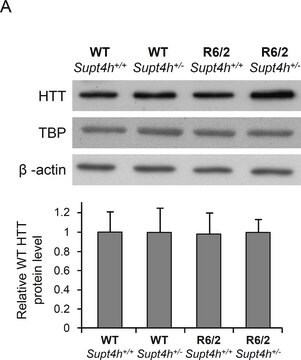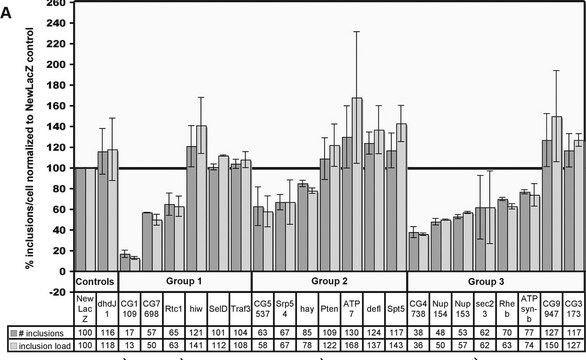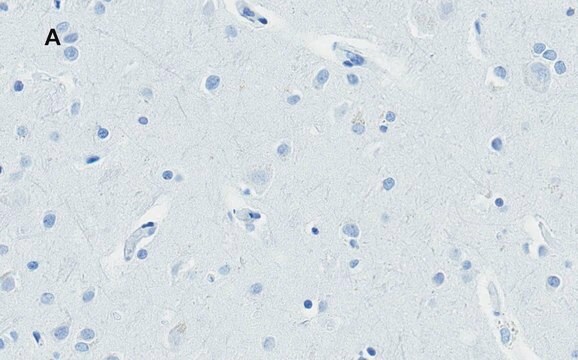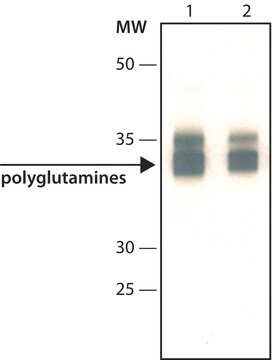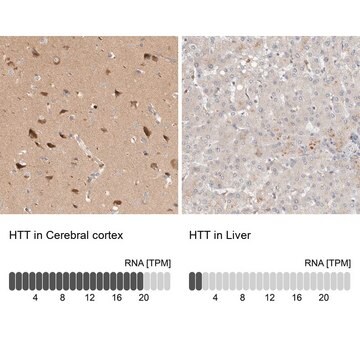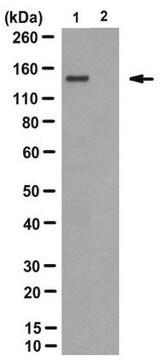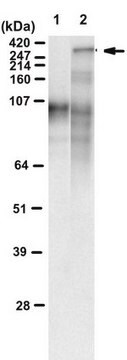H7540
Anti-Huntingtin (N-terminal) antibody produced in rabbit

affinity isolated antibody, buffered aqueous solution
Sinonimo/i:
Anti-HD, Anti-HTT, Anti-Huntington Disease, Anti-IT15
About This Item
Prodotti consigliati
Origine biologica
rabbit
Livello qualitativo
Coniugato
unconjugated
Forma dell’anticorpo
affinity isolated antibody
Tipo di anticorpo
primary antibodies
Clone
polyclonal
Stato
buffered aqueous solution
PM
antigen ~110 kDa
Reattività contro le specie
mouse, human, rat
Convalida avanzata
recombinant expression
Learn more about Antibody Enhanced Validation
Concentrazione
~1.5 mg/mL
tecniche
western blot: 0.5-1.0 μg/mL using a HEK-293T cell lysate expressing a N-terminal fragment of human huntingtin
N° accesso UniProt
Condizioni di spedizione
dry ice
Temperatura di conservazione
−20°C
modifica post-traduzionali bersaglio
unmodified
Informazioni sul gene
human ... HTT(3064)
mouse ... Htt(15194)
rat ... Htt(29424)
Descrizione generale
Applicazioni
- in magnetic bead-assisted immunopurification
- in western blotting
- in immunofluorescent staining
- in immunoblotting
Azioni biochim/fisiol
Stato fisico
Esclusione di responsabilità
Non trovi il prodotto giusto?
Prova il nostro Motore di ricerca dei prodotti.
Raccomandato
Codice della classe di stoccaggio
10 - Combustible liquids
Punto d’infiammabilità (°F)
Not applicable
Punto d’infiammabilità (°C)
Not applicable
Dispositivi di protezione individuale
Eyeshields, Gloves, multi-purpose combination respirator cartridge (US)
Scegli una delle versioni più recenti:
Certificati d'analisi (COA)
Non trovi la versione di tuo interesse?
Se hai bisogno di una versione specifica, puoi cercare il certificato tramite il numero di lotto.
Possiedi già questo prodotto?
I documenti relativi ai prodotti acquistati recentemente sono disponibili nell’Archivio dei documenti.
Il team dei nostri ricercatori vanta grande esperienza in tutte le aree della ricerca quali Life Science, scienza dei materiali, sintesi chimica, cromatografia, discipline analitiche, ecc..
Contatta l'Assistenza Tecnica.